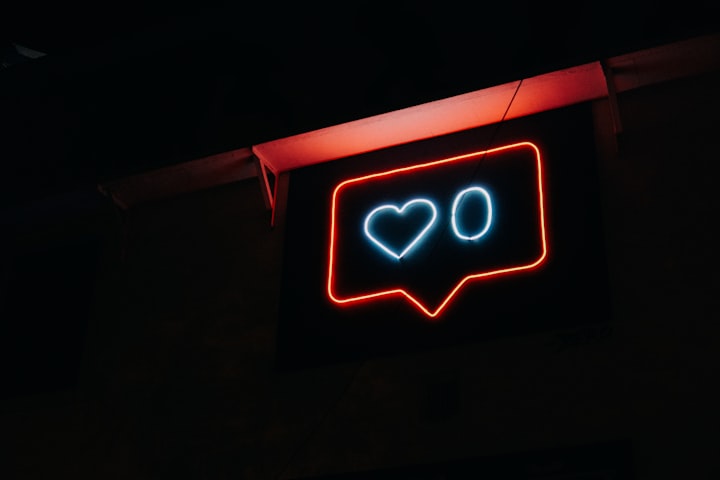Celebrity Worship
An Investigation

There's something really nice about being a part of a fandom. Personally, I am a part of the Bob Dylan fan culture (the Bobcats), the Michael Jackson fan culture (the Moonwalkers), the 50s Rockabilly fan culture and various movie and literature fan cultures. It is a lovely place to make friends online with people who are interested in the same things as you. This is why I hardly ever really feel lonely because it is like I always have at least one person to talk to out of all of these. But when I'm on social media, I also engage with these cultures in a healthy manner, we simply talk about the theories of songs, or book and film recommendations - apart from that, it doesn't go much further.
But there is a darker part of fandom culture which seems to be more of a part of the younger generation of children aged around 10 to 15 years' old. This is called celebrity worship culture. But what is celebrity worship syndrome? The various internet dictionaries define it as:
"Celebrity worship syndrome (CWS) is an obsessive addictive disorder in which a person becomes overly involved with the details of a celebrity's personal and professional life. Psychologists have indicated that though many people obsess over film, television, sport and pop stars, the only common factor between them is that they are all figures in the public eye. This is commonly found on sites such as Facebook, Twitter and Instagram."
This is sometimes passed off as an extreme form of the current 'stan' culture from children who would not remember where the word 'stan' actually comes from and if they did know the context they wouldn't use the word. This is a mental health disorder and can grow from smaller things such as:
- picking fights with people on social media who do not like or do not recognise the perceived talent of the individual being worshipped
- invading social spaces for other political/cultural causes and 'spamming' it with pictures, videos or relative content to the individual being worshipped in order to 'take over' the content
- becoming so involved with the culture that most of the child's personality is lived through the online social media world in which they engage in the previous two things
- feelings of depression when they are not on social media because they cannot engage in this behaviour and therefore, don't feel a part of a group
Obviously, none of these are healthy and the disorder spreads by relying on the child's naivety towards the separation of social media and real life. As the child grows up, if it is not solved, the disorder can grow into their adult life and become more dangerous and sometimes, even criminal.
Let us take a look at what could happen if this is left untreated:
- Stalking - dominated mainly by adult men, stalking can come in many forms. This can either be mostly online but if it spills over into real life, it becomes almost criminal. Female celebrities have died as a result of their male stalkers murdering them, but so have men as a result of 'hero worship' or even romantic worship. The most famous case is probably the assassination of John Lennon, who was murdered by a crazy fan who eventually went to jail. Low self-esteem and self-worth play a large part in the fact that the person may turn out to stalk their favourite celebrities.
- Love - believing the celebrity is in love with them, this is normally dominated by people who suffer with conditions such as depression, bipolar disorder or anxiety disorders. This is normally towards a smaller celebrity of possibly television or locality. Someone who is particularly easier access than the bigger, film acting or international superstar celebrities. The gender does not tend to matter, but this can also commit itself to bigger celebrities in some special cases. A famous case: the woman who stalked David Letterman for five years and the man who stalked Jodie Foster for a number of years
- Soul Mate - believing that the celebrity in question is your soul mate. This is usually done by people who have low self-esteem. For example: a woman who is obsessed with a celebrity or with physically attractive celebrities is more likely to get cosmetic surgery than those who are not
Obviously, some of these conditions are criminal and well, if we can stop this syndrome when it becomes dangerous to the child's mental health so they do not grow up to do this, then we can stop a number of crimes being committed by the individual but more importantly - stop a victim getting into a dangerous and compromising situation because of just being who they are and having a specific career.
What is the normal level of this culture?
- The normal level is sometimes referred to as 'entertainment-social' and is normally committed to by adults who did not grow up with celebrity worship syndrome because of either not having access to social media because of it not being around or even simply just not partaking in the group mentality that would lead to the dangerous worship.
- The entertainment-social level refers to people who are just simply 'fans'. They are people who admire certain people online and are part of cultures in which they discuss things with other people. It is normally completely harmless and has not pursuing personality which puts the celebrity themselves in danger.
- However, this can also grow into something unhealthy and dangerous and can sometimes grow beyond this level on to the others. This is because the online culture of trying to catch a celebrity's attention can sometimes become an unhealthy obsession in which the person involved could either be 'spamming' the celebrity or even trying to gain access to information that is not public such as locations and addresses/phone numbers.
So, when it comes to these people, who are those most likely to participate in celebrity worship culture in its worse forms?
- Those with higher levels of depression and anxiety
- Those with higher stress levels or suffer with some sort of trauma
- Those who are discontented or hateful of their own image
- Those who suffer (diagnosed or not) with dissociative disorders
How does this spill over into the years of 2020 and 2021?
- With the higher levels of mental health problems coming out of the lockdowns of COVID-19, this can lead to the want to belong to particular groups and the group of fan cultures online are very accepting of people who respect the same celebrities that they do
- The disillusion of others and becoming more anti-social through the heavy use of social media can lead to loneliness and therefore, can also lead to the want to belong to a group. This is pack mentality and this can lead to not only abusive behaviour towards others but putting yourself in a situation in which others would be enabling this mental illness, making it worse
- The way in which children aged 10-15 are not monitored correctly online and therefore, have more and better access to unhealthy obsessions controlled by communities of people either the same age or older than them and are being enabled by them and encouraged into unhealthy or even criminal behaviours.
Most of these are a result of children having more mental health problems due to not only the lockdowns in various countries destroying their real social lives and cultures, so they move online. But it is also due to the fact that children are spending more and more time online and spending more and more time trying to live up to these celebrity cultures that make them 'part of the group'. Feeling the need to commit to things and if you do not do these things 'you are not a real fan' shows us that children are far more impressionable on the social media platforms concerned.
How can we, as adults, help with this?
Help children who are on social media to have lives outside social media as well by promoting real-life hobbies that we ourselves have. Try to get them involved with things that are interesting that don't include being on the internet such as artwork, playing an instrument, reading books or comics, writing their own books or comics etc. This hopefully can help some children to create a healthier relationship with social media because when that happens, they can truly understand the real life and social media life differentiation and therefore, have a healthier relationship with their fandom cultures.
When a child talks to you about their mental health, point them in the directions they require to get help instead of stating things such as 'you're not a real fan if you don't do (a), (b), (c) and (d)' - because young people are impressionable and look up to people who they perceive to be 'better' and 'longer' fans.
About the Creator
Annie Kapur
200K+ Reads on Vocal.
English Lecturer
🎓Literature & Writing (B.A)
🎓Film & Writing (M.A)
🎓Secondary English Education (PgDipEd) (QTS)
📍Birmingham, UK







Comments
There are no comments for this story
Be the first to respond and start the conversation.